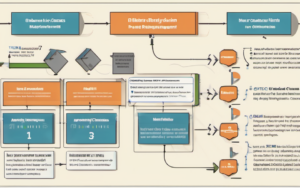The buzz surrounding blockchain technology has been undeniable. It’s been touted as a revolutionary force, promising to transform industries from finance to healthcare. But is it all hype, or does this technology hold real potential? While blockchain has garnered immense attention, it’s crucial to separate the hype from the reality.
Is Blockchain Overhyped?
The Hype Cycle
The hype surrounding blockchain is undeniable. From news headlines to industry conferences, it’s a hot topic. This heightened attention often leads to inflated expectations, which can create a sense of overhyping. However, it’s important to remember that every emerging technology goes through a hype cycle.
The Promise of Blockchain
The promise of blockchain lies in its ability to revolutionize how we trust and interact with data. Its core principles of decentralization, transparency, and immutability offer unique advantages over traditional systems. But it’s not a magic bullet. It’s a powerful tool, but its potential can only be realized through careful implementation and understanding of its limitations.
What Blockchain Can Do
Decentralization and Transparency
Blockchain enables decentralized systems, eliminating the need for a central authority. This fosters transparency, as all transactions are recorded and accessible to everyone on the network. This can be particularly valuable in industries like supply chain management, where traceability and accountability are crucial.
Security and Immutability
Data stored on a blockchain is immutable, meaning it cannot be altered or deleted. This inherent security feature makes it an ideal solution for applications requiring tamper-proof records, such as voting systems or medical records.
Efficiency and Automation
By automating processes and removing intermediaries, blockchain can streamline operations and reduce costs. Smart contracts, self-executing agreements stored on the blockchain, can automate workflows and eliminate the need for manual intervention.
New Business Models
Blockchain enables the creation of new business models, such as decentralized marketplaces and peer-to-peer platforms. It empowers individuals to control their data and participate in networks without relying on intermediaries.
What Blockchain Can’t Do
Solve All Problems
While blockchain offers significant advantages, it’s not a solution for every problem. It’s essential to carefully assess whether blockchain is the right tool for a specific application.
Guarantee Success
The success of a blockchain-based solution depends on several factors, including the design, implementation, and adoption. It’s not a guaranteed path to success.
Replace Existing Systems Overnight
Implementing blockchain technology often requires significant changes to existing infrastructure and processes. It’s not a simple switch that can be flipped overnight.
The Future of Blockchain
Continued Innovation
The blockchain space is constantly evolving with new technologies and applications emerging. Continued innovation is crucial to address existing challenges and unlock new possibilities.
Wider Adoption
As the technology matures and its benefits become more apparent, wider adoption across industries is expected. This will lead to greater integration and more real-world applications.
Real-World Applications
Beyond cryptocurrencies, blockchain is finding its way into various sectors. From supply chain management to healthcare and government services, real-world applications are demonstrating the technology’s transformative potential.
Beyond the Hype
The future of blockchain is bright, but it’s important to approach it with a realistic perspective. While the technology has immense potential, it’s not a silver bullet for every problem. By understanding its capabilities and limitations, we can harness its power to create a more secure, efficient, and transparent future.




